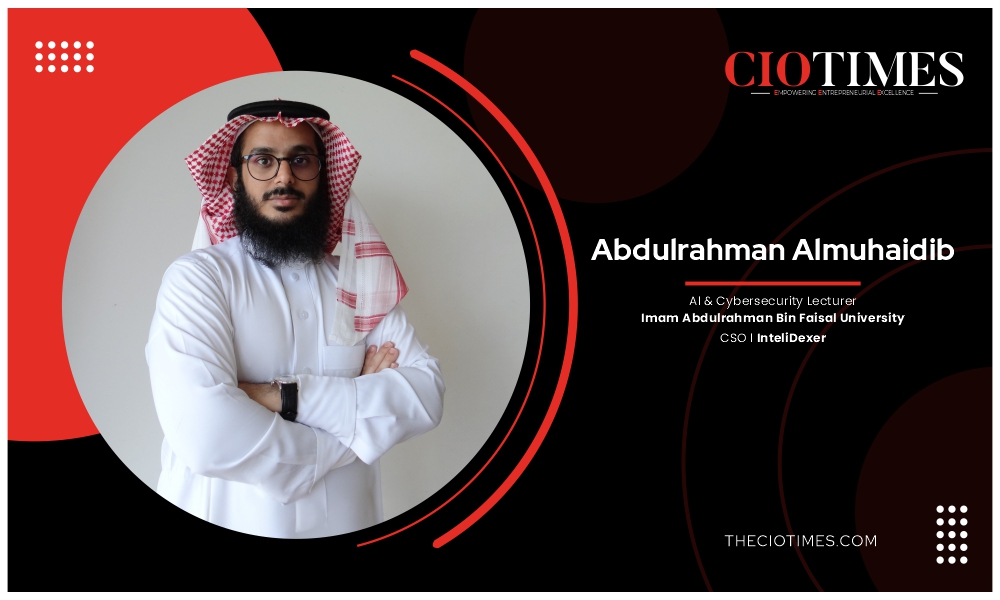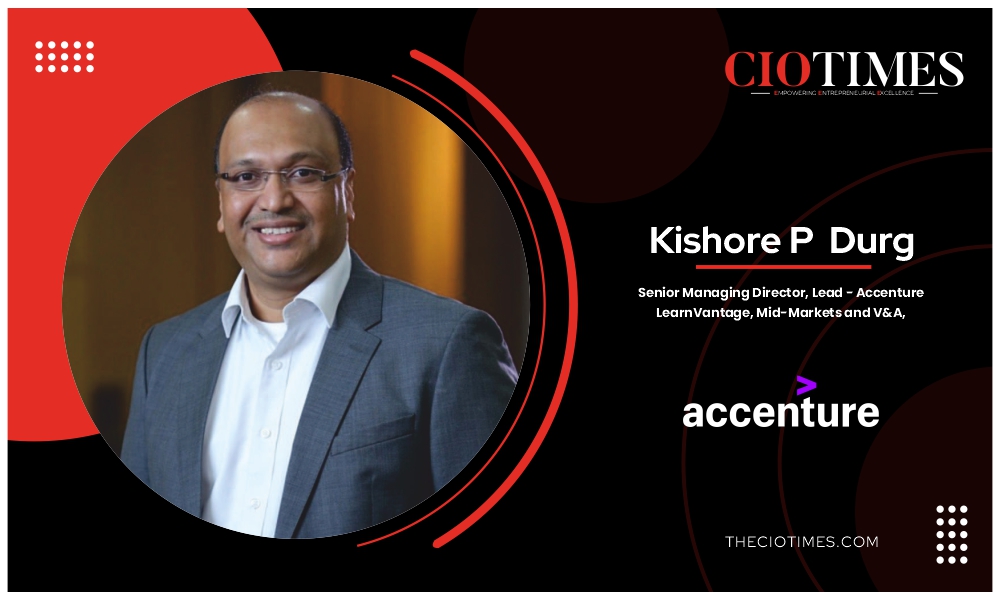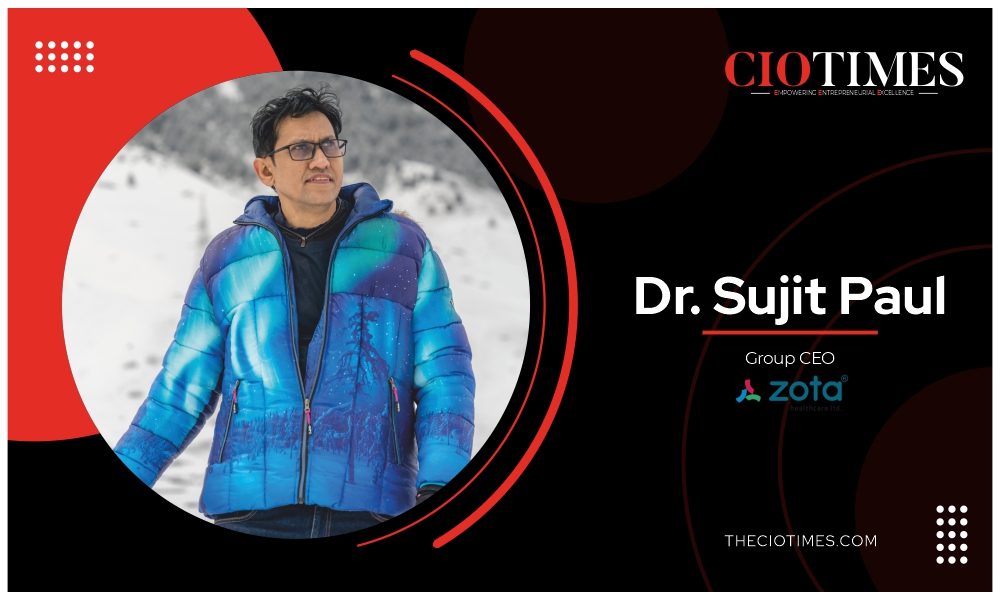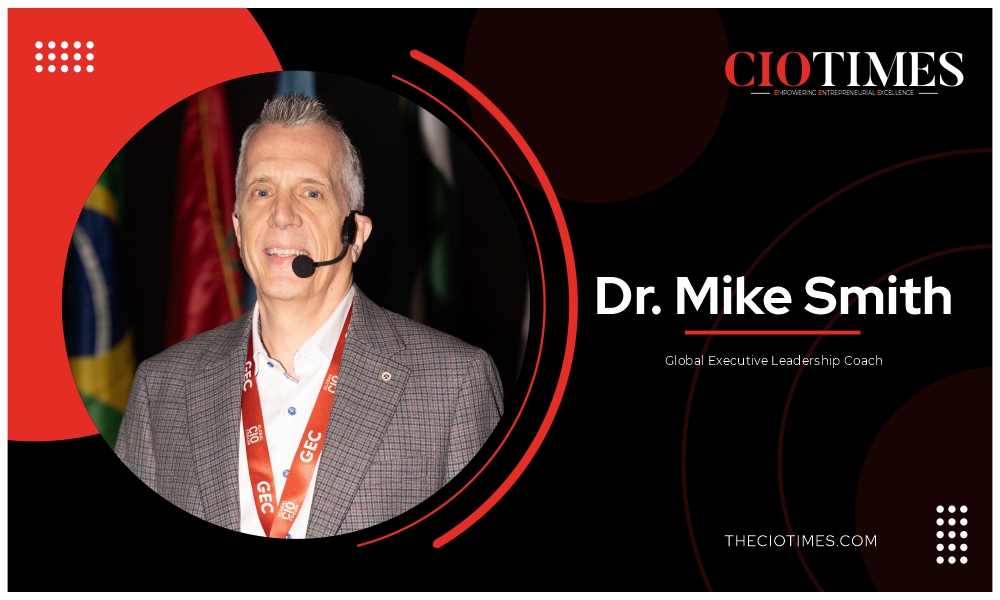In an era where Artificial Intelligence is reshaping industries and redefining possibilities, Abdulrahman Almuhaidib is quietly building the scaffolding for the future. As a lecturer at Imam Abdulrahman Bin Faisal University, he’s shaping the next generation of computer scientists with a curriculum rooted in rigor and relevance. But his impact doesn’t stop at the classroom door.
As Chief Scientific Officer at InteliDexer, Almuhaidib is at the helm of cutting-edge research in AI and data science, driving solutions that bridge academic theory with real-world application. His dual role reflects a rare blend of educator and innovator—someone who not only teaches the principles of intelligent systems but also architects them in practice.
This feature explores how Abdulrahman Almuhaidib is redefining the boundaries between research and enterprise, and why his work is a blueprint for the kind of scientific leadership the digital age demands.
A Mission-Driven Journey
Abdulrahman’s professional journey is a mission to secure the future of the digital world—one rooted in a pivotal moment that convinced him that cutting-edge knowledge is our strongest defense. This mission aligns closely with Saudi Vision 2030’s goal of building a knowledge-based, digitally empowered economy that leads in innovation and security.
The catalyst came during his time at Sahara Net, Saudi Arabia’s first ISP, where he worked as a Cybersecurity Engineer. When the company was hit by a sophisticated cyberattack, Abdulrahman was the first to detect the anomaly and was tasked with leading the response team. His team not only halted the breach and prevented data leakage but also reversed the damage and implemented safeguards to prevent recurrence. That high-pressure experience shaped his belief that Cybersecurity resilience depends on equipping the next generation with deep, actionable knowledge.
His move into academia was a deliberate step to fulfill that mission.
Today, Abdulrahman serves as a Lecturer at Imam Abdulrahman Bin Faisal University and leads research that bridges theory with real-world application. His PhD work—Improved Framework of Fine-Tuning Llama 3 for Accurate Penetration Testing in Cyber Warfare—uses Low-Rank Adaptation (LoRA) to fine-tune Llama 3 for automated vulnerability validation with human-level precision. He has validated this Autonomous Pentesting Agent through active hacking in controlled environments, aiming to reduce the 38% of operational capacity currently spent on manual validation.
This research is more than academic—it’s a blueprint for building fully Saudi-made, AI-driven Cybersecurity tools. These can be deployed on “Bullfight servers” for continuous testing or on portable edge devices for on-site audits. It’s a direct contribution to the Kingdom’s Cybersecurity resilience and the Saudi Made initiative. “My vision is to teach, yes—but more importantly, to build the future by empowering Saudi talent to lead in securing our digital world,” says Abdulrahman.
Teaching Tomorrow: Cybersecurity Leadership in a Disrupted Era
As a Lecturer and researcher at Imam Abdulrahman Bin Faisal University, Abdulrahman mentors and trains emerging Saudi Cybersecurity talent. His role is a vital part of his broader mission to secure the digital future. Positioned at the intersection of academic rigor, industry demands, and rapid technological innovation, he acts as a bridge between theory and practice. His active involvement in the Cybersecurity and Digital Forensics Curriculum Unit ensures that the university’s programs remain agile, relevant, and forward-looking.
In an age defined by disruptive technologies—AI Agents, Large Language Models (LLMs), and Machine Learning—Abdulrahman views educational leadership as more than instruction. It’s about preparing students for a future that is constantly evolving. His approach is anchored in two key principles.
First, he emphasizes a curriculum that is not only current but anticipates future trends. By integrating insights from his research and his work at InteliDexer, he brings cutting-edge, real-world knowledge into the classroom, equipping students with tools that are already shaping the Cybersecurity landscape.
Second, he fosters a mindset of continuous learning and ethical responsibility. Abdulrahman encourages students to think critically about the societal impact of their work, ensuring they grow into innovators who are both technically proficient and ethically grounded.
Through this dual focus, he ensures that students are not merely adapting to change—they are leading it. His work exemplifies how academic leadership can actively shape the future of Cybersecurity in Saudi Arabia and beyond.
Industry Meets Academia
As Chief Scientific Officer at InteliDexer, Abdulrahman plays a pivotal role in bridging academia and industry, creating a dynamic feedback loop that fuels innovation in Cybersecurity and AI education. InteliDexer connects him directly to real-world challenges, which sharpen the focus of his academic research and ensure it remains practical and solution-oriented.
This synergy drives meaningful advancements in higher education. Technological frameworks developed through Abdulrahman’s research—such as his fine-tuned Llama 3 AI Agent for automated penetration testing—are validated at InteliDexer and explored for commercialization. This creates a tangible pathway from academic discovery to industry deployment, offering students firsthand exposure to cutting-edge tools and methodologies.
The collaboration goes beyond research. InteliDexer’s CEO regularly conducts free workshops for university students, while the company provides hardware, technical reviews, and co-authorship on Abdulrahman’s papers. This partnership ensures students aren’t just learning about emerging technologies—they’re actively contributing to their development.
Through this dual role, Abdulrahman is redefining how scientific leadership can shape the future of Cybersecurity and AI. His work exemplifies how close collaboration between academia and industry can empower students to become innovators in a rapidly evolving digital landscape.
Rethinking Cybersecurity Education for the Age of Autonomous Agents
Teaching students about Autonomous Cyber Agents demands a fundamental shift in pedagogy. The traditional reactive model—focused on known threats—is no longer sufficient. Abdulrahman advocates for a proactive approach that prepares students for a future shaped by intelligent, self-directed systems.
He identifies two key shifts. First, the curriculum must evolve from tool mastery to understanding and managing AI Agents. Students need to learn how to interact with, evaluate, and build these systems—not just memorize rules and signatures. The future lies in grasping the logic behind agent decision-making, recognizing their potential for misuse, and learning how to control them effectively.
Second, the learning environment must be both realistic and ethically grounded. Abdulrahman’s “Bullfight server” concept exemplifies this— an isolated lab environment where students can safely simulate and analyze full-scale aggressive cyberattacks generated by Gen-AI systems. This hands-on simulation helps learners understand the power and limitations of these technologies.
His research on deploying fine-tuned Llama 3 Agents on portable edge devices offers a practical framework for on-site security audits. Through this model, students gain technical proficiency while developing ethical awareness—essential for navigating the complexities of an AI-driven digital world. Abdulrahman’s approach ensures learners aren’t just adapting to change—they’re equipped to lead it.
Building a Cybersecurity Ecosystem Through Collaboration
For Abdulrahman, collaboration between universities, industry leaders, and policymakers is not a lofty ideal—it’s a strategic necessity for advancing Cybersecurity education. He views the Cybersecurity landscape as a dynamic ecosystem, and his role is to serve as a bridge, facilitating the continuous exchange of knowledge and resources across sectors.
On the industry front, Abdulrahman has cultivated a strong partnership with InteliDexer, where he serves as Chief Scientific Officer. This collaboration goes beyond theory. InteliDexer’s CEO, Abdulaziz Almuhaidib, regularly conducts free workshops for university students, offering hands-on exposure to real-world challenges. The company also supports Abdulrahman’s research with hardware, technical expertise, and co-development, creating a feedback loop where academic insights directly inform industry solutions—and vice versa.
On the policy side, Abdulrahman’s work is closely aligned with Saudi Vision 2030. His focus on developing homegrown Cybersecurity tools and nurturing Saudi talent inherently supports national goals. By integrating strategic priorities into his teaching and research, he ensures that graduates are not only technically skilled but also aligned with the Kingdom’s vision for a secure, digitally empowered future.
Through these efforts, Abdulrahman is helping shape a collaborative model where academia, industry, and policy converge to build lasting Cybersecurity resilience.
Empowering Future Cybersecurity Innovators
Abdulrahman’s approach to student empowerment centers on cultivating innovators, not just professionals. He believes the most effective way to achieve this is through immersive, hands-on experience that extends beyond traditional classrooms. A key initiative involves integrating students directly into his research—engaging them in every phase, from literature reviews to data collection and writing. This method trains them to become true researchers, capable of independent inquiry and innovation.
As Chief Scientific Officer at InteliDexer, Abdulrahman has also built a mentorship platform that connects students with real-world challenges. Through this collaboration, InteliDexer offers free workshops and project-based learning opportunities, giving students firsthand exposure to startup dynamics and industry-relevant problems. These experiences encourage them to think creatively and develop practical solutions.
“Ultimately, every initiative I lead is designed with one goal in mind: to cultivate a new generation of Saudi talents who are not just prepared for the job market but are equipped to become the leaders who will shape the future of Cybersecurity,” he says.
Ethics Meets Engineering
Abdulrahman views the balance between technical rigor and ethical awareness as the cornerstone of modern Cybersecurity education. He believes these elements are inseparable—each technical skill must be paired with a deep understanding of its ethical implications and real-world consequences.
This philosophy is embedded throughout his teaching. For instance, when exploring advanced topics like fine-tuning Large Language Models (LLMs) for penetration testing, Abdulrahman emphasizes not just the “how,” but the “why”—why the technology matters, the ethical responsibilities it entails, and the risks of misuse. His recent paper, Weaponizing Language Models for Cybersecurity Offensive Operations, serves as a catalyst for these discussions, prompting students to confront the ethical dimensions of emerging tools.
By integrating ethical inquiry into technical instruction, Abdulrahman ensures students develop both critical thinking and moral responsibility. His goal is to mentor Cybersecurity professionals who are not only technically exceptional but also ethically grounded and committed to serving the greater good.
Future-Ready Cybersecurity Leaders: Skills, Mindsets & Mentorship
By 2030, Cybersecurity professionals will be defined by more than technical expertise—they’ll need a fusion of mastery in AI, adaptability, and ethical awareness. Abdulrahman emphasizes the importance of proficiency in developing AI Agents and ML models, especially in leveraging Large Language Models (LLMs) for both offensive and defensive operations. Skills in deploying intelligent systems on edge devices will also be critical for physical security audits.
Yet, technical ability alone won’t suffice. Abdulrahman believes future professionals must embrace continuous learning, strategic thinking, and a deep sense of ethical responsibility. To mentor emerging talent, he embeds students directly into his research projects, allowing them to co-author papers and gain hands-on experience with cutting-edge technologies. His collaboration with InteliDexer further enhances this by offering students exposure to real-world challenges.
Keeping Academia Ahead of Cyber Threats
Abdulrahman ensures academic institutions stay agile and relevant by treating the curriculum as a living framework—constantly evolving to meet emerging cyber threats. His proactive strategy links academic programs directly to industry developments, creating a dynamic feedback loop.
As a member of the Cybersecurity and Digital Forensics Curriculum Unit, Abdulrahman integrates cutting-edge topics like AI Agents, Machine Learning, and advanced attack vectors into coursework as soon as they surface. His research and insights from InteliDexer play a key role in shaping what students learn, ensuring alignment with real-world challenges.
He also champions flexible learning models, such as the “Bullfight server”—an isolated lab environment where students can safely simulate and analyze cyberattacks. This enables rapid, hands-on training tailored to current threat landscapes.
To maintain relevance, Abdulrahman aligns academic content with industry certifications and standards. This ensures students graduate with skills that are both academically rigorous and professionally validated. Through this multi-pronged approach, he prepares students not just for today’s Cybersecurity roles, but to lead and innovate in the evolving digital frontier.
Leading the Future of Autonomous Cyber Defense
Abdulrahman envisions a future where the boundary between human threat actors and AI Agents becomes indistinguishable. Cybersecurity will evolve into managing autonomous digital warfare, with intelligent systems acting as both attackers and defenders. His mission is not just to prepare for this future—but to lead it.
Over the next five years, Abdulrahman aims to complete his PhD and commercialize his automated AI Agent framework through InteliDexer, establishing it as a Saudi-made product that strengthens national Cybersecurity and supports the Saudi Made initiative.
At the institutional level, Imam Abdulrahman Bin Faisal University shares this vision. The goal is to become a regional leader by launching specialized Master’s and PhD programs focused on AI and Cybersecurity. Abdulrahman also plans to help establish a Center of Excellence that attracts top Saudi talent, drives world-class research, and positions the university as a global hub for preparing the next generation of Cybersecurity leaders—fully aligned with Saudi Vision 2030.
Building a Legacy of Innovation and Impact
Abdulrahman envisions his legacy not as a single achievement, but as a self-sustaining ecosystem of innovation built on three pillars: product, people, and process.
The product is his PhD-developed automated AI Agent—a homegrown Saudi framework designed to strengthen the Kingdom’s Cybersecurity resilience and showcase its capacity for indigenous innovation.
The people are his students, whom he considers his greatest legacy. Abdulrahman’s mission has always been to mentor and train them as real researchers and ethical innovators, capable of leading Saudi Arabia’s digital future.
The process is the bridge he’s built between academia and industry. Through collaborations with institutions like Imam Abdulrahman Bin Faisal University and companies such as InteliDexer, he has created a model for how education and business can jointly tackle complex challenges. His goal is to ensure research remains relevant and the talent pipeline remains strong—laying the foundation for lasting national impact.
Defining Words
“Knowledge is a weapon”.
This quote embodies Abdulrahman’s entire professional journey.
He says, “My experience at Sahara Net showed me firsthand the devastating impact of cyberattacks and the critical importance of deep, technical knowledge in mitigating them. It solidified my belief that true expertise is a powerful tool, and my mission now is to arm the next generation with that same knowledge to defend our digital future.”
Connect with Abdulrahman Almuhaidib on LinkedIn




